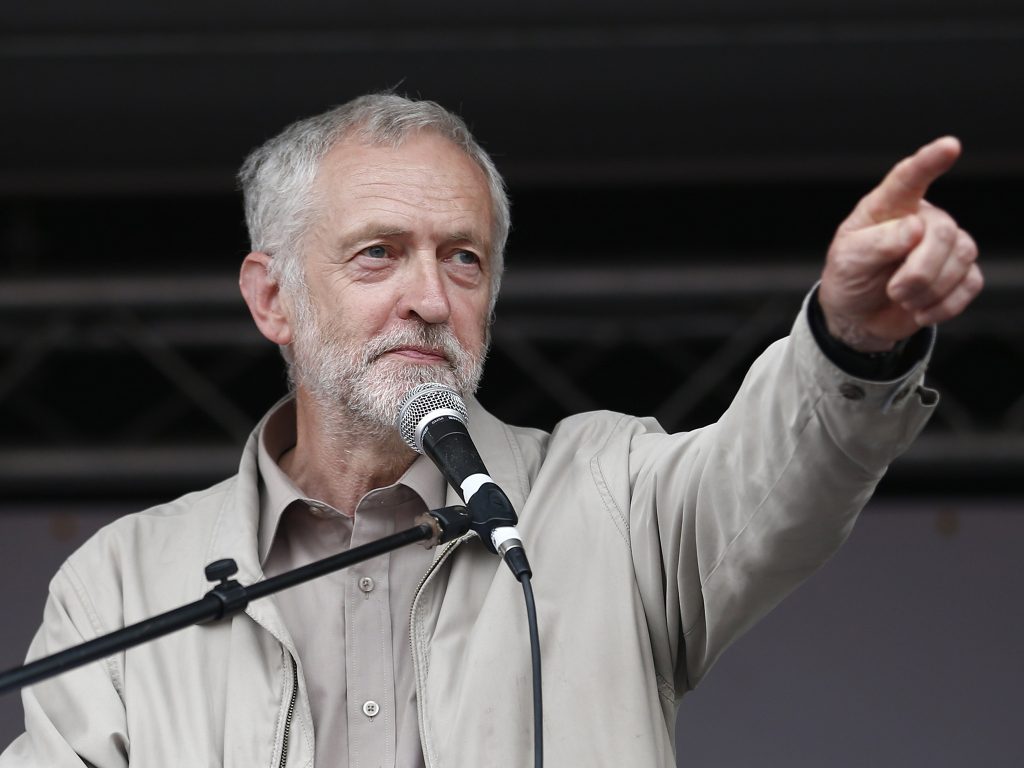
Why should we love Jeremy Corbyn? Why should this man, this beard and beige adorning, allotment attending man, be greeted with our adoration?
To answer this, we should examine the political sphere currently in place. A growing resentment towards politicians resonates amongst nearly all of us, and why? Despite strong words, big gestures and emphatic lip service given by politicians, Britain suffers from a limp lack of alternatives. Many critics of Ed Miliband’s Labour party state that it was his lack of radical alternatives to the Conservatives that lost him the election. On issues such as Europe he remained as silent as the grave, a decision that lead to as much for his career. Regarding the housing issue he was vague, nondescript and insufficient.
We regard our political scene with a sense that this is all we can choose from, and all we will choose from. A recent Anti-Austerity march, a few days after the Conservatives won a second term in office, was attended by just a few thousand people. Students are amongst a society finding it increasingly difficult to identify strongly with a political party or affiliation, passion and drive seem to be in wanting.
I adore the newspaper headline in anticipation of Corbyn’s involvement in the Labour Party leadership content: ‘Labour infiltrated by Marxism’. I adore this deliciously awful remark because of what we can infer from it:
We. Are. Scared. Of. Change.
Mortified in fact, to the extent that David Cameron felt confident enough to play upon this fear, claiming that the new Labour Party was a ‘threat to national security’. Really, David, come now. In a similar tone to the likening of Nigel Farage to Adolf Hitler, this shows a stunning unwillingness to depart from the complacent political context we find ourselves in, a feeling that we are walking a successful tightrope over a chasm of chaos, bubbles underneath every prejudice against a radical view, and it is pathetic.
Back to Corbyn, and why we should be really excited about this old man. What can he bring?
Corbyn did not sing the national anthem. We have not had a prominent politician holding the stance of anti-monarchist for a long time, and we can expect perspectives on the monarchy to be addressed, costs of the Queen, whether she represents exploitative aristocratic heritage built on the toils of people who actually work, or whether she grounds the population in her intrinsic role in our national identity.
Before a recent BBC interview, Corbyn prepared by offering the camera crew tea. He was not swarmed by a rapturous crowd of advisors, attempting to create the definition of the image ‘smart casual’ and unintentionally precisely contradicting it, whilst running over buzzwords and power-sentences to make the ear drool. A long shot here admittedly, but could we see emerging a type of politician of genuine character, a person prepared not to rehearse answers to every question and mimic the responses of a computer, but think on the spot with his intellect and his heart?
On his first Prime Ministers Questions, a democratic institution which appears every Wednesday in the House of Commons and offers the opposition an opportunity to put questions directly to the Prime Minister, Corbyn opted not to create harsh and piercing questions from his own mind, attempting to trip up Mr Cameron, but he asked the General Public, that’s you and me, to send in questions to ask. Not to sound the bigot, but was that a moment in politics where the public were directly involved and consulted? How nice.
You may not recall Ed Miliband’s attempt at courting us, the student body, by promising a reduction in tuition fees from £9000- £6000 per year, because in the grand scheme of things it is not all that much a reduction (this writer has heard it referred to as a ‘skid-mark gesture’ and appears to miss the point: that students objected to the concept that they are having to pay any amount for the right to be educated. Corbyn revalidates discussion on this debate by expressing support for the total and complete scrapping of tuition fees, in addition to the reinstatement of Maintenance Grants, a plan costing £10 billion.
If anything, we should pay attention to Jeremy Corbyn. It is quite possible that he will not lead Labour to victory in 2020. But we can expect challenge ahead, provocation in areas often left to rest as in our opinions on the monarchy, and opinions on issues that directly affect us, the students. Whatever happens, his views are new, radical, varied. It is all a little bit exciting.
